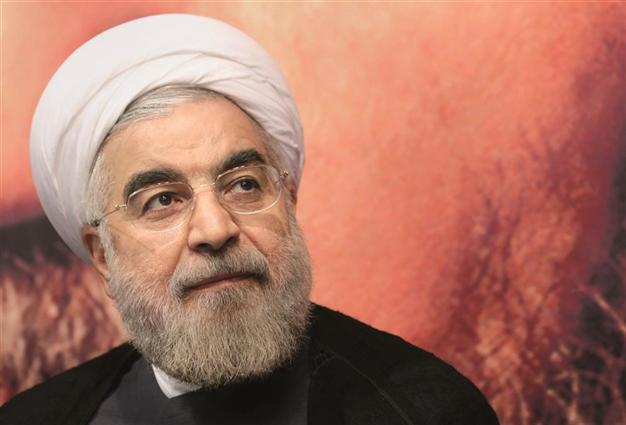Tehran eyes détente with Western powers
TEHRAN/ WASHINGTON

Iranian President Hassan Rouhani is likely to be the main force of a change in Iran’s domestic affairs and foreign policy decisions. Rouhani’s op-ed for the Washington Post called on world powers to quit the use of ‘brute force.’ REUTERS photo
Tehran is continuing to hold out an olive branch to the West, amid a possible meeting between U.S. President Barack Obama and Iranian counterpart Hassan Rouhani next week at the United Nations.
In letters, statements, television interviews and even tweets, Iran and the United Nations have been gingerly testing attitudes and appetites for détente on either side of their metaphorical iron curtain. Neither side is ruling out what would be a historic first handshake between the president of the Islamic Republic and the president of the United States at the U.N. General Assembly next week.
At the heart of the U.S.-Iran impasse is a long-running dispute over Tehran’s nuclear program. Rouhani was elected in June promising to ease Iran’s strained foreign relations with the West and U.S.-led sanctions that buckled its economy in a bid to punish a nuclear drive.
Rouhani, who was offered “flexibility” in negotiations by Supreme Leader Ayatollah Ali Khamanei, has spurred curiosity in Washington, which is mustering for a new round of so far fruitless nuclear diplomacy between Iran and world powers.
White House spokesman Jay Carney, sending his own signal toward Tehran, noted “lots of interesting things” coming out of the Iranian capital.
Obama and Rouhani have both acknowledged in interviews that they have exchanged letters, prompting hopes they may stage a show of mutual respect in the U.N. corridors of power.
‘Anything’s possible in the world of politics’ The White House says there are no meetings scheduled between Rouhani and Obama, but has repeatedly declined to rule out a face-to-face chat.
Rouhani took a similar tack in an NBC interview broadcast, saying: “anything is possible in the world of politics.”
Meanwhile, Rouhani has urged world leaders to “seize the opportunity” presented by his election to engage Iran in constructive dialogue.
In an opinion piece published in the Washington Post on Sept. 19, the centrist cleric said nations needed to seek “win-win outcomes” instead of using “brute force” to combat terrorism, extremism, cybercrime and other challenges.
“As I depart for New York for the opening of the U.N. General Assembly, I urge my counterparts to seize the opportunity presented by Iran’s recent election. I urge them to make the most of the mandate for prudent engagement that my people have given me and to respond genuinely to my government’s efforts to engage in constructive dialogue.”
In another effort to woo the Western nations, Rouhani has ordered the authorities to show a greater tolerance on social, cultural and media issues.
Foreign Minister Mohammad Javad Zarif has become the first Iranian official to have a verified account on Twitter. He caused a diplomatic shockwave earlier this month when he wished Jews a happy Rosh Hashanah (new year) and also stated that Iran did not deny the Holocaust.
Also this month, almost all of Iran’s ministers have opened Facebook pages in what is seen as a move toward greater openness. Still, the social media site is blocked in the Islamic Republic.
In another possible gesture to ease Western concerns, Iranian authorities released this week a prominent human rights lawyer, Nasrin Sotoudeh, who was arrested in 2010 and convicted of spreading propaganda and conspiring to harm state security.
